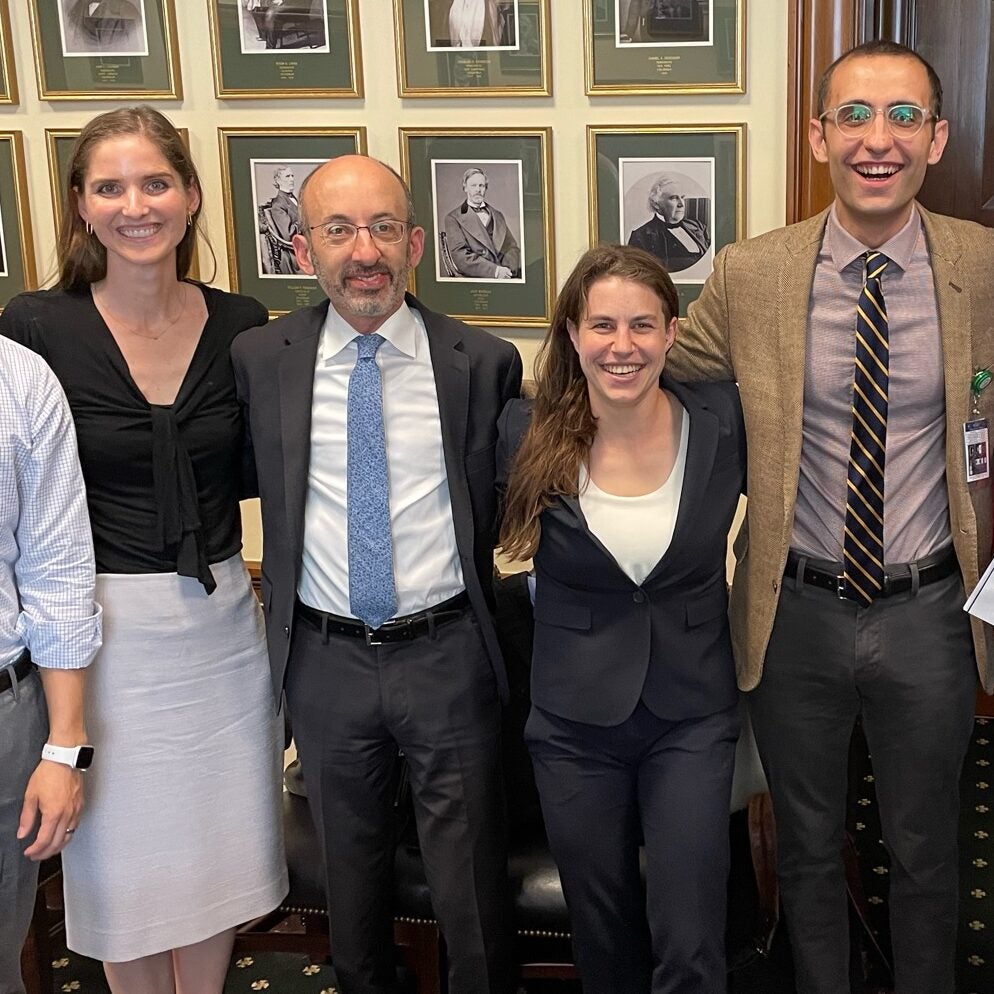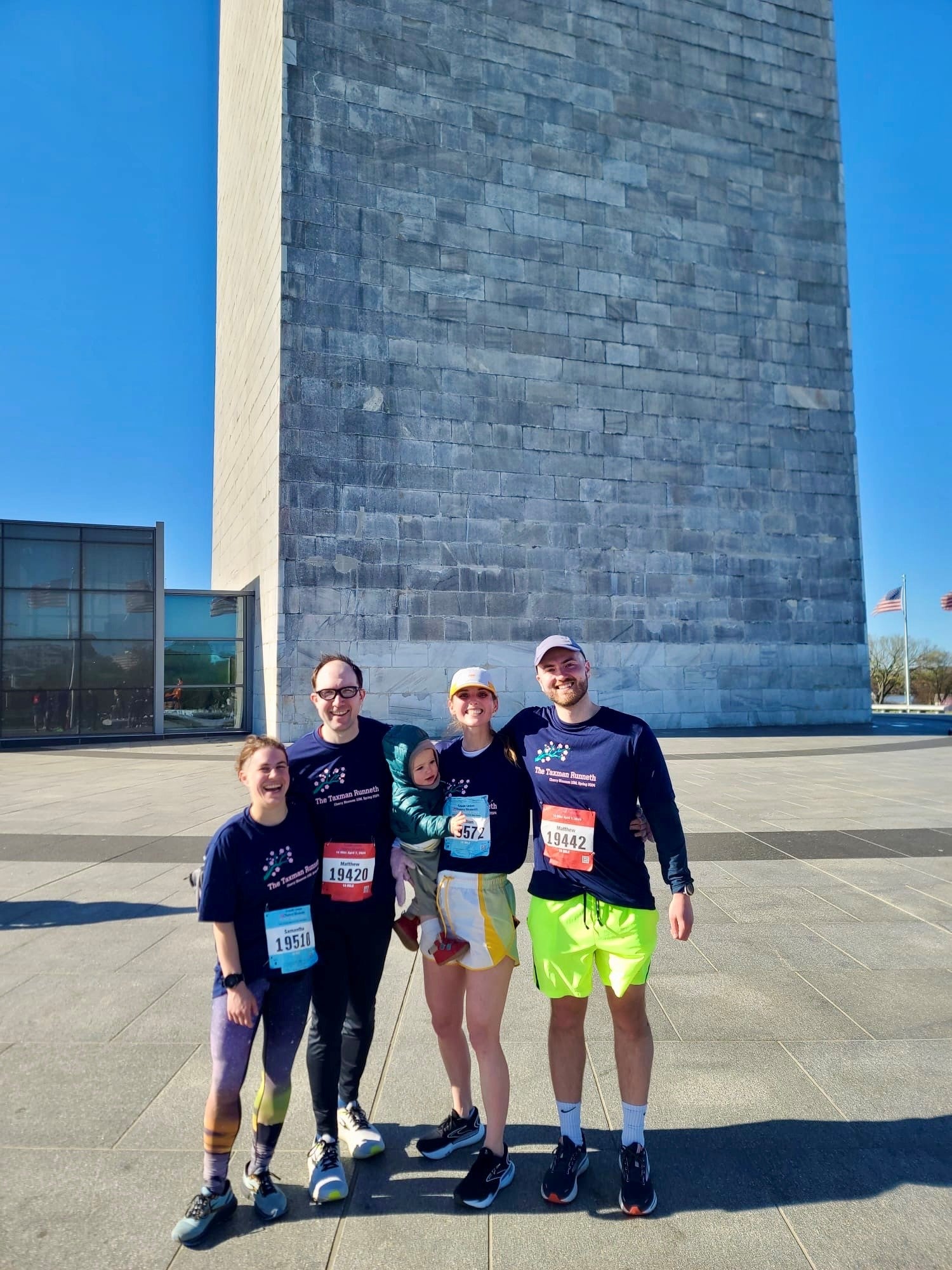By Samantha Strimling ’24
My time at the Joint Committee on Taxation through the Government Lawyer: Semester in Washington Clinic has been the capstone experience of my time at Harvard Law School. My time at JCT provided me with the chance to dive deeper into everything I fell in love with about tax through my courses at HLS. I learned an incredible amount both about the substance of tax and the legislative process, all while working with the best team of colleagues on the Hill.
Working at JCT was a great opportunity to practice statutory interpretation in the real world, with real stakes. Even the simplest assignments—drafting a list of questions for a Senate Finance Committee investigation, writing a memo for an internal discussion on the treatment of disaster relief payments under current law—would send me into rabbit holes. I would find myself reading and rereading the text of the statute, then diving deep into the regulations, sub-regulatory guidance (which itself could be several layers deep), case law, and legislative history in order to decipher the true meaning of a given provision.

Courtesy of Samantha Strimling ’24
My experience at JCT solidified my perception that, by choosing a career in tax, I would never stop growing as a lawyer. I love that tax touches everything: the Code is riddled with puzzles and policy decisions. In twelve short weeks at JCT, I worked on projects spanning subject areas as diverse as environmental regulation, financial products, cryptocurrency, antitrust, tribal benefits, international tax, and compliance. I also had multiple opportunities to think about how the practice of tax law fits more generally into our legal system. I wrote several memos or internal emails on topics in administrative law or federal courts in order to evaluate how a given tax guidance document would be treated or explain how the Tax Court fits into our system of governance.
One of the highlights of my experience was working with my coworkers to prepare a report for the House Ways and Means Committee. The U.S. is one of 139 jurisdictions worldwide that joined a larger agreement in October 2021 to reshape the international tax system in response to the fact that many companies today interact with the global economy through digital services and platforms rather than via brick-and-mortar establishments. As a first step in implementing this agreement, the Organization for Economic Cooperation and Development (OECD) published the Multilateral Convention published in October 2023, which would prescribe a new means for large multinational enterprises to allocate their profits. The U.S. has yet to sign on to the agreement, without which the agreement cannot pass. The purpose of the hearing was to inform Congress and collect feedback from members to inform Treasury negotiations with other OECD countries over the final form of the agreement. At JCT, I was included both in the drafting and editing process in producing the pamphlet for the hearing, and subsequently got to attend the hearing itself. I also got to attend a briefing with one of the Congressmembers prior to the hearing such that she could participate in the discussion in an informed manner. After the hearing, I was able to attend several briefings by Treasury in which they informed legislative staff of both parties and in both houses of Congress how they planned to approach negotiations.
This hearing—including the before and after—provided an incredible occasion to learn about the legislative process from start to finish. Additionally, international tax was a key substantive area of tax that I had not studied in law school, and being part of this process provided an excellent chance to learn on the job. This project was also particularly exciting in that it provided an opportunity to think systemically about the design of the tax system as a
whole, as opposed to merely thinking about smaller changes that could be made within the context of the current Code.

Courtesy of Samantha Strimling.
Last but not least, while I enjoyed many of my individual projects at JCT, what really made the experience phenomenal was the chance to work with an absolutely wonderful team of lawyers, economists, and staff. JCT is a unique place, defined by a commitment to confidentiality and non-partisanship, as well as an exceptionally flat organizational structure. All of these features combined made JCT perhaps one of the most collegial environments in which I have ever worked. Some of the highlights of my semester included training for and running the Cherry Blossom 10 Miler with my coworkers (we placed third among all House teams!) and monthly “Wine School” in which one of the economists would moonlight as a sommelier and the whole staff would gather in the office after work for snacks and drinks.
While the entire JCT staff was extremely supportive, intellectually curious, and patient in explaining complicated topics, several deserve special mention. My supervisor, Jeff Arbeit, spent an incredible amount of time not only providing me individual feedback on my writing, and talking through tax concepts with me more generally on subjects that interested me. Without his mentorship, my time at JCT would not have been the same. Adam Gropper, Senior Legislative Counsel, made a particular effort to loop me into projects and provide opportunities to liaise with legislative staff and participate substantively in meetings starting from my first week on the job. Finally, this being my first foray to the Hill, my officemate Matt Muma was an endless resource for my many questions about the office and/or Congress and was a reliable wingman for any networking event.
I loved every day at JCT and walked away from this experience a more confident and knowledgeable tax lawyer. I so loved this opportunity that I plan to stay on part-time during the summer while studying for the bar. For any HLS student in tax, I can’t recommend this externship highly enough!
Filed in: Clinical Student Voices
Tags: Class of 2024, Government Lawyer: Semester in Washington Clinic
Contact Office of Clinical and Pro Bono Programs
Website:
hls.harvard.edu/clinics
Email:
clinical@law.harvard.edu